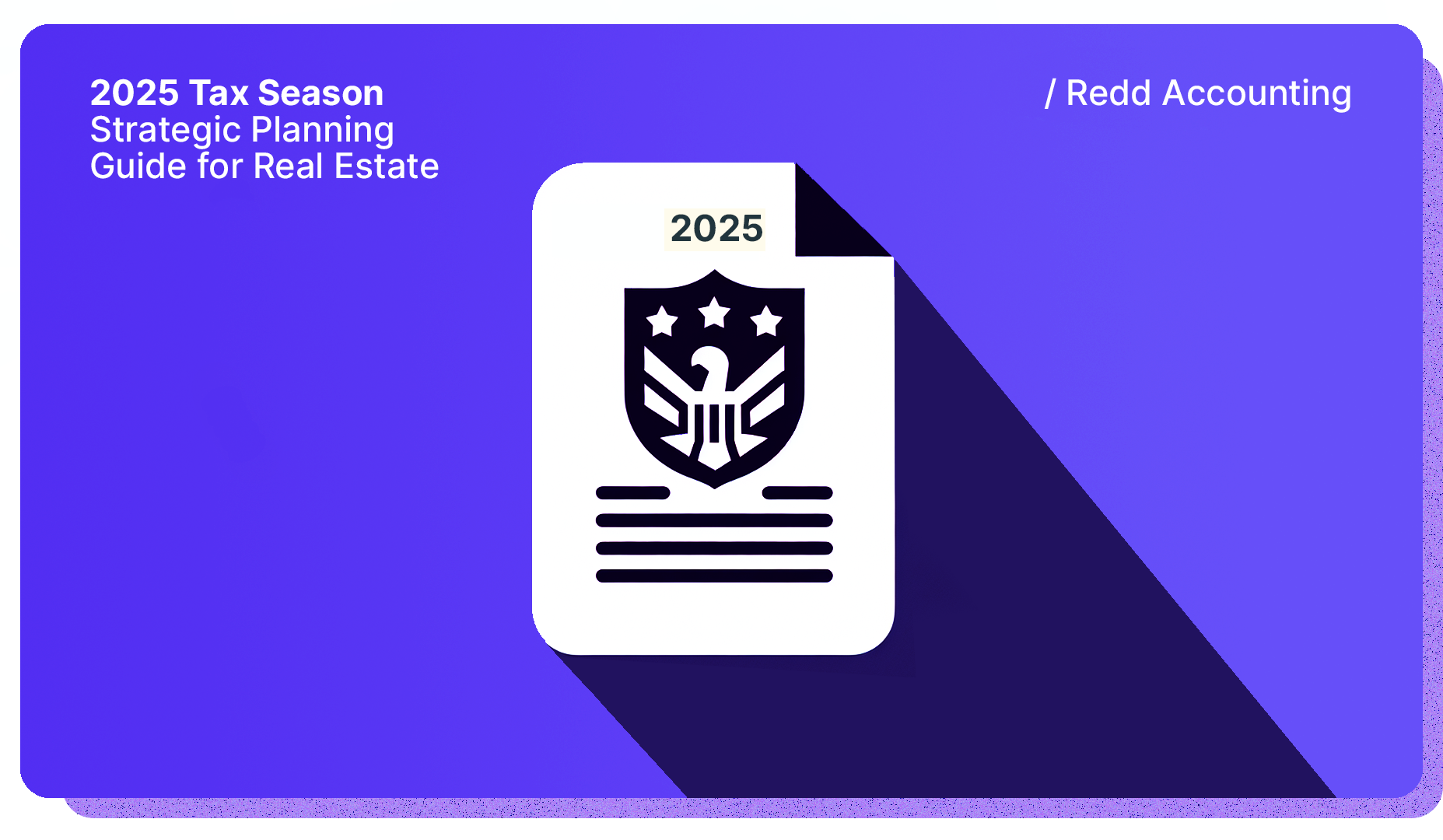Above the Line is a weekly digest of the most important stories in real estate, accounting and finance.
Read our previous posts:
Major Changes Ahead for Housing Market as Fannie Mae and Freddie Mac Face Reform
December 2, 2024
Significant changes are coming to the U.S. housing market as Fannie Mae and Freddie Mac face potential structural reforms. Meanwhile, CMBS delinquencies hit new highs, and China explores its own fundamental property market reforms. These developments signal major shifts ahead for real estate markets both domestically and globally.
Here's what you need to know. Let’s dive in.
Analysis: Major Changes Ahead for Fannie Mae and Freddie Mac
The Institutional Risk Analyst
Potential structural changes loom for Fannie Mae and Freddie Mac, the government-sponsored enterprises that underpin the U.S. mortgage market. The analysis suggests their business models may shift significantly, particularly in how they compete with banks and handle mortgage servicing rights - changes that could fundamentally reshape how mortgages are bought and sold in America.
CMBS Delinquency Rate Soars to 6.40% in November
WRE News
The CMBS delinquency rate jumped 42 basis points to 6.40%, with office delinquencies spiking to 10.38%. The surge was driven by significant increases across office, multifamily, and lodging sectors, highlighting growing stress in commercial real estate debt markets.
China Considers Fundamental Property Market Reform
MSN Money
China is exploring significant reforms to its property sector through changes to its household registration system. The potential overhaul could unlock consumer spending and reshape the nation's real estate market, offering a new approach to addressing the ongoing property crisis.
REDD Accounting is a global firm specializing in property accounting and bookkeeping services for real estate companies. Whether you are a small-scale operation or managing a large portfolio of properties, we have the expertise and resources to support your unique needs.
Dive Deeper
2025 Tax Season: Strategic Planning Guide for
Real Estate Investors

The 2025 tax season brings unique challenges and opportunities for real estate investors with significant changes to depreciation rules, energy credits, and state-level regulations. We've analyzed the changes and we’re here to help with a quick guide that covers what you need to know.
Critical Changes for 2025
1. Bonus Depreciation Reduction: The bonus depreciation rate is decreasing from 80% in 2024 to 60% for properties placed in service during 2025. This makes the timing of property improvements and acquisitions more critical than ever (Instrumental Wealth).
2. Energy Efficiency Tax Credits: The Inflation Reduction Act enhanced the Energy Efficient Commercial Buildings Deduction (Section 179D). Commercial property owners can now claim up to $5.00 per square foot for qualified energy improvements that reduce energy usage by at least 25% (IRS).
3. State and Local Tax (SALT) Changes: Several states have introduced workarounds to the $10,000 SALT deduction cap by offering pass-through entity tax elections. These strategies can significantly impact your tax liability but vary widely by state (IRS and state-specific tax authorities).
1. Bonus Depreciation Reduction: The bonus depreciation rate is decreasing from 80% in 2024 to 60% for properties placed in service during 2025. This makes the timing of property improvements and acquisitions more critical than ever (Instrumental Wealth).
2. Energy Efficiency Tax Credits: The Inflation Reduction Act enhanced the Energy Efficient Commercial Buildings Deduction (Section 179D). Commercial property owners can now claim up to $5.00 per square foot for qualified energy improvements that reduce energy usage by at least 25% (IRS).
3. State and Local Tax (SALT) Changes: Several states have introduced workarounds to the $10,000 SALT deduction cap by offering pass-through entity tax elections. These strategies can significantly impact your tax liability but vary widely by state (IRS and state-specific tax authorities).
Strategic Opportunities to Consider Now
1. Cost Segregation Studies: With bonus depreciation still at 60%, cost segregation studies remain a powerful tax planning tool. For example, investors can save $100,000+ in current-year taxes on properties valued at $1 million or more through accelerated depreciation.
2. Energy Credit Stacking: Recent IRS guidance allows investors to combine multiple energy credits. For instance, it is now possible to stack the 179D deduction with local energy incentives, potentially doubling tax benefits for energy efficiency projects (IRS Guidance).
3. Pass-Through Entity Elections: More states are offering pass-through entity tax elections, enabling businesses to deduct state taxes above the $10,000 SALT cap at the entity level. Review your state's specific regulations to determine if this strategy applies to you.
1. Cost Segregation Studies: With bonus depreciation still at 60%, cost segregation studies remain a powerful tax planning tool. For example, investors can save $100,000+ in current-year taxes on properties valued at $1 million or more through accelerated depreciation.
2. Energy Credit Stacking: Recent IRS guidance allows investors to combine multiple energy credits. For instance, it is now possible to stack the 179D deduction with local energy incentives, potentially doubling tax benefits for energy efficiency projects (IRS Guidance).
3. Pass-Through Entity Elections: More states are offering pass-through entity tax elections, enabling businesses to deduct state taxes above the $10,000 SALT cap at the entity level. Review your state's specific regulations to determine if this strategy applies to you.
Common Pitfalls to Avoid
1. Misclassifying Improvements: The IRS has increased scrutiny on the distinction between repairs (immediately deductible) and improvements (capitalized and depreciated). Misclassifying these expenses can lead to audits and penalties (IRS Publication 946).
2. Missing Passive Activity Elections: Real estate professionals often miss the opportunity to aggregate properties for the passive activity loss rules. Making this election can enable losses to be deductible instead of suspended (IRS Form 8582 Instructions).
3. Overlooking State Compliance: States with economic nexus rules are increasing penalties for non-compliance. Investors with out-of-state properties must remain vigilant about meeting all filing requirements to avoid unexpected liabilities (Multistate Tax Commission).
1. Misclassifying Improvements: The IRS has increased scrutiny on the distinction between repairs (immediately deductible) and improvements (capitalized and depreciated). Misclassifying these expenses can lead to audits and penalties (IRS Publication 946).
2. Missing Passive Activity Elections: Real estate professionals often miss the opportunity to aggregate properties for the passive activity loss rules. Making this election can enable losses to be deductible instead of suspended (IRS Form 8582 Instructions).
3. Overlooking State Compliance: States with economic nexus rules are increasing penalties for non-compliance. Investors with out-of-state properties must remain vigilant about meeting all filing requirements to avoid unexpected liabilities (Multistate Tax Commission).
Action Items for Q1 2025
1. Schedule a cost segregation feasibility analysis for properties acquired in 2024
2. Review and document all property improvements to support repair vs. capitalization decisions
3. Evaluate state tax elections before filing deadlines
4. Document energy improvements completed in 2024 to maximize available credits
Note: This analysis is for informational purposes only and does not constitute tax advice. For guidance specific to your situation, please consult with a qualified tax advisor.
REDD Accounting is a global firm specializing in property accounting and bookkeeping services for real estate companies. Whether you are a small-scale operation or managing a large portfolio of properties, we have the expertise and resources to support your unique needs.
Ready to optimize your tax strategy?
Housing Market Shows Signs of Recovery as Sales Post First Annual Gain
November 25, 2024
In this week's edition of Above the Line, your essential briefing for the week ahead in real estate and tax, we examine the first annual gain in existing home sales in three years, analyze the DOJ's challenge to NAR's commission settlement, and look at Zillow's optimistic forecast for 2025. These insights offer critical context for navigating the evolving real estate landscape.
Let's dive into these key developments shaping our industry.
Housing Market Posts First Annual Sales Gain in Three Years
World Property Journal
In a significant market shift, October existing-home sales rose 3.4% monthly and 2.9% annually, marking the first year-over-year increase since 2021. Total inventory climbed 19.1% while median prices reached $407,200, suggesting a market moving toward balance.
DOJ Challenges NAR Settlement Hours Before Approval Hearing
HousingWire
The Department of Justice filed a last-minute challenge to NAR's settlement, specifically opposing the requirement for buyer broker agreements. The intervention adds uncertainty to Tuesday's hearing and raises questions about future industry compensation structures.
Zillow Forecasts More Active Housing Market in 2025
Zillow Research
Zillow predicts home sales will increase to 4.3 million in 2025, up from 4.0 million in 2024, with home values growing 2.6%. The forecast suggests buyers will gain leverage in negotiations as inventory improves, though mortgage rates will remain volatile.
REDD Accounting is a global firm specializing in property accounting and bookkeeping services for real estate companies. Whether you are a small-scale operation or managing a large portfolio of properties, we have the expertise and resources to support your unique needs.
Dive Deeper
Confronting the New Property Tax Revolt: The TL:DR on
Real Estate’s Big Challenge

Tax Foundation's Jared Walczak recently published 'Confronting the New Property Tax Revolt,' analyzing reform options for today's property tax challenges. We’ve read the article and summarized the positions. For the complete 39-minute read, see the original article.
The Current Property Tax Crisis:
Property values have skyrocketed 27% above inflation since 2020, with some markets seeing even more dramatic increases. In fast-growing areas like Bozeman, Montana, and Boise, Idaho, home values have doubled in just seven years. This surge means homeowners face significantly higher tax bills even when local governments haven't officially raised rates. The result? A nationwide push for property tax reform, with some states even considering complete elimination of the tax.
Popular Solutions That Actually Backfire According to Tax Foundation:
The Most Promising Solution per Tax Foundation: Levy Limits
Levy limits target the real problem: uncontrolled growth in total property tax collections. Here's how they work:
Why This Matters:
Property taxes critically fund essential local services like schools, emergency services, and infrastructure.
Property values have skyrocketed 27% above inflation since 2020, with some markets seeing even more dramatic increases. In fast-growing areas like Bozeman, Montana, and Boise, Idaho, home values have doubled in just seven years. This surge means homeowners face significantly higher tax bills even when local governments haven't officially raised rates. The result? A nationwide push for property tax reform, with some states even considering complete elimination of the tax.
Popular Solutions That Actually Backfire According to Tax Foundation:
- Complete Elimination: While politically appealing, eliminating property taxes would force a shift to income or sales taxes, which research shows could reduce economic growth by nearly 3%
- Assessment Caps: These limits look good on paper but create a "two-tier" tax system where new homeowners pay dramatically more than longtime residents for identical properties
- State Tax Rebates: When states step in with rebates, local governments often respond by maintaining higher rates, leading to higher overall taxation
- Rate Limits: Simply capping tax rates doesn't help when the problem is rising property values, not rate increases
The Most Promising Solution per Tax Foundation: Levy Limits
Levy limits target the real problem: uncontrolled growth in total property tax collections. Here's how they work:
- Automatically caps how much additional revenue can be collected from existing properties
- Forces tax rates downward when property values rise sharply
- Allows revenue from genuine new growth (like new construction)
- Treats all property owners equally, regardless of how long they've owned their home
- Includes options for voter-approved increases when communities want to fund specific projects
Why This Matters:
Property taxes critically fund essential local services like schools, emergency services, and infrastructure.
Bottom Line:
According to the Tax Foundation, the property tax system isn't broken - it just needs better guardrails. While many proposed solutions sound great in theory, levy limits emerge as the most practical way to protect homeowners while preserving local government's most important revenue tool.
Note: This summary is for informational purposes only and does not constitute financial or tax advice. For guidance specific to your situation, please contact us.
REDD Accounting is a global firm specializing in property accounting and bookkeeping services for real estate companies. Whether you are a small-scale operation or managing a large portfolio of properties, we have the expertise and resources to support your unique needs in navigating these complex tax challenges.
Need help developing your property tax strategy?
Dive Deeper
Builder Sentiment Surges as Credit Data Calms Housing Fears
November 18, 2024
In this week's edition of Above the Line, your essential briefing for the week ahead in real estate and tax, we examine surging homebuilder confidence, explore why credit data suggests housing stability rather than crisis, and look at how residential firms are realistically implementing AI technology. These insights offer a clearer picture of the housing market's trajectory and technological evolution.
Let's dive in.
Homebuilder Confidence Hits Seven-Month High
Bloomberg
The NAHB/Wells Fargo gauge climbed 3 points to 46, with the six-month sales outlook reaching its highest level since April 2022. While builders are using incentives like mortgage rate buydowns to boost sales, the sentiment indicates growing optimism about market conditions.
Credit Data Shows No Housing Crash on Horizon
HousingWire
New York Fed credit report reveals homeowners are in significantly stronger financial positions than pre-2008, with fixed-rate mortgages and stringent underwriting standards providing stability. Current foreclosure rates remain at historic lows, while FICO scores demonstrate robust borrower quality.
Real Estate Firms Take Measured Approach to AI Implementation
The Real Deal
Two years after ChatGPT's launch, residential real estate firms are focusing on practical AI applications rather than revolutionary changes. Companies like Marketproof, Zillow, and Redfin are scaling existing tools and building on proven technology for listing descriptions and market analysis.
REDD Accounting is a global firm specializing in property accounting and bookkeeping services for real estate companies. Whether you are a small-scale operation or managing a large portfolio of properties, we have the expertise and resources to support your unique needs.
Dive Deeper
/ Redd
© Redd Accounting 2025